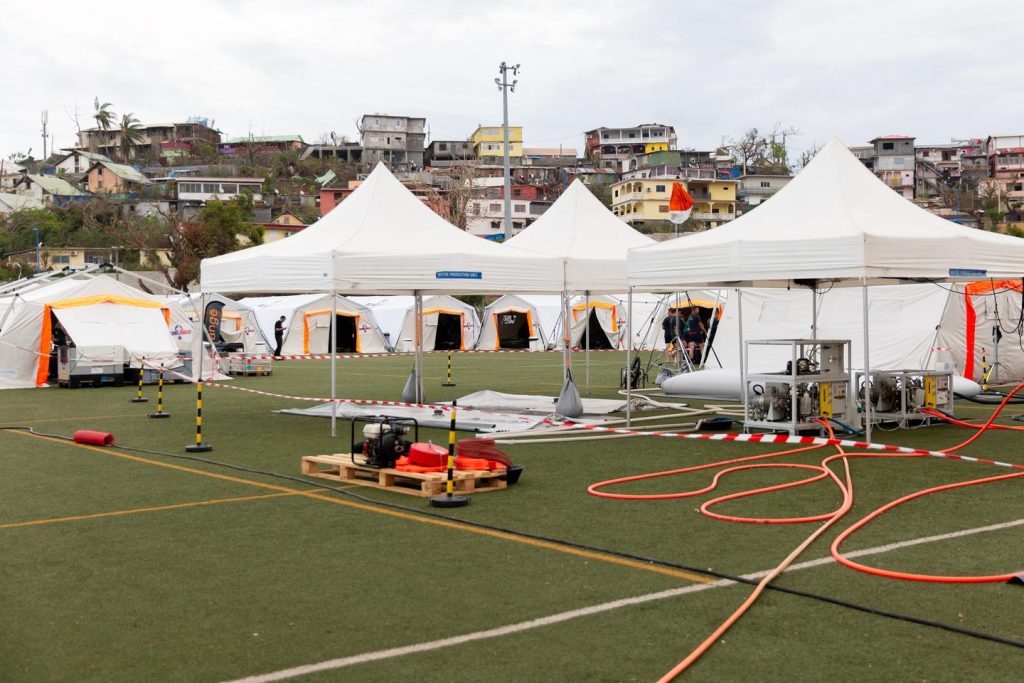A man with a badly slashed arm held in a sling with a belt hesitates before entering the emergency room at the hospital center of Mayotte (CHM) in Mamoudzou, the capital of the department. The service is unusually quiet and empty, causing concern. In the silent waiting room, three or four men with half-closed eyes wait, while a mother holds her child. It’s usually impossible to find a seat, and sometimes patients have to wait up to two days before being seen. The situation worsened after Cyclone Chido hit on December 14, with injured people lying on the floor amidst cries, tears, and miscarriages. A makeshift tent was set up outside to handle the overflow. By December 28, only a few damaged plastic bottles remain inside.
The man with the slashed arm becomes alarmed, thinking there must be a police operation underway to control undocumented immigrants, a common occurrence that often empties the waiting room. He himself is in an illegal situation, like half of the island’s 450,000 inhabitants. He feels the need to flee quickly, scanning for any sign of uniforms but seeing only a nurse on break peacefully eating a pastry. This sense of unease stems from the pervasive fear of being caught and deported amidst the chaos of the hospital. The man reflects on the general feeling that the situation would not improve.
The hospital’s understaffing, lack of resources, and chaotic conditions are exacerbated by the ongoing issues around immigration and legal status on the island. The crisis following Cyclone Chido highlighted the already fragile state of the healthcare system in Mayotte, leading to further strains and challenges for both patients and medical staff. The man with the slashed arm symbolizes the struggles faced by many in accessing proper healthcare and navigating the complex realities of living in a region plagued by poverty, insecurity, and bureaucratic obstacles.
The article sheds light on the urgent need for improved healthcare infrastructure and resources in Mayotte, as well as the necessity of addressing the socio-economic and political factors that contribute to the precarious situation faced by many residents. The man’s experience at the hospital reflects a broader pattern of neglect and systemic failure in providing adequate medical care, especially in times of crisis. The lack of proper facilities and personnel has significant consequences for the well-being and safety of vulnerable populations, exacerbating existing disparities and injustices.
Ultimately, the story underscores the importance of addressing the root causes of the healthcare crisis in Mayotte, including issues related to poverty, immigration, and inadequate government support. It calls for a comprehensive and sustainable approach to improving access to healthcare services and addressing the underlying social determinants of health in the region. The man’s desperate situation serves as a poignant reminder of the urgent need for change and reform in the healthcare system, as well as broader efforts to address the structural inequalities and injustices that perpetuate suffering and hardship for many in Mayotte.















